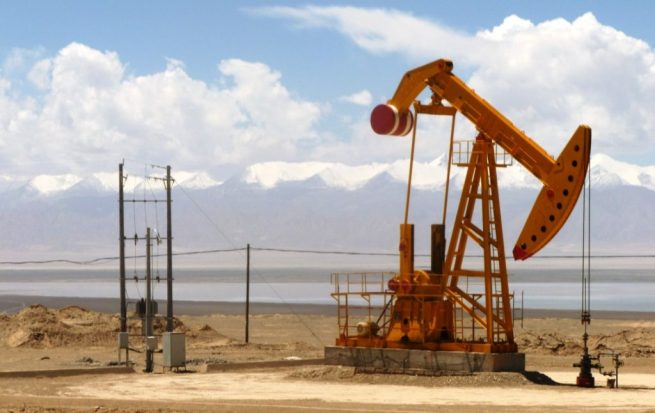Zim a step closer to oil/gas breakthrough
Australian firm, Invictus Energy, which is scouring the ground for petroleum deposits in Mbire and Muzarabani districts (Mashonaland Central province) north of Zimbabwe, moved closer to its objective of discovering commercially extractable hydrocarbons in the country, after successfully recovering a fluid sample from the shallower Pebbly Arkose geological formation target.
The company is now battling to overcome challenging test well conditions, after recovering fluid samples from Pebbly Arkose, to also get two more samples further down to determine the existence of moveable petroleum deposits at the Mukuyu-2 exploration well.
Invictus said its exploration team successfully recovered natural gas (predominantly methane and trace heavier hydrocarbons to the surface from the Pebbly Arkose formation and continued pipe-conveyed logging (gauging) operations due to challenging borehole conditions.
After encountering challenges completing the sample recovery for the remaining target geological formations due to borehole washout (damage) the company will drill a side track to complete the process for the Lower and Upper Angwa rock formations to the targeted measured depth.
“Further evaluation results continue to reaffirm the presence of moveable hydrocarbons at Mukuyu-2, evidenced by the recovery of natural gas from the Pebbly Arkose formation and further wireline logging data interpretations obtained from the Upper and Lower Angwa reservoirs.
“Due to compounding sampling challenges, borehole conditions and well control measures the company, in conjunction with our service providers, has determined a simple vertical sidetrack will provide the strongest opportunity to achieve our remaining Upper and Lower Angwa evaluation objectives.
“The company is currently funded to conduct and evaluate the planned sidetrack operations, with the completion allowing the well to be suspended for future flow testing,” Invictus chief executive Scott McMillan said.
Invictus said wireline logging (measurement) data from gamma-ray, density-neutron and resistivity has identified multiple hydrocarbon bearing intervals in the Upper and Lower Angwa reservoir sands, subsequently reaffirming the moveable hydrocarbons observed during initial fluid sample clean-up, which showed gas and liquid hydrocarbons flowing through the onboard compositional fluid analyser (CFA).
The contracted Exalo Rig 202 is preparing to plug back the existing 8,5-inch wellbore section and commence re-drilling the 8,5-inch hole section with more optimal parameters to approximately 3 400 metres measured depth above where the overpressure zone in the Lower Angwa target.
Invictus said Mukuyu-2 vertical sidetrack will be more conducive for conventional wireline logging operations including the fluid sampling to be conducted in the Upper Angwa and part of the Lower Angwa reservoirs, providing favourable parameters for a more efficient and economic sidetrack operation in comparison to the Mukuyu-1 sidetrack well.
Wireline logging is the measurement of downhole (of the borehole) (geological) formation attributes using special tools or equipment lowered into the borehole to determine the size of petroleum deposits underground.
Oil and gas discovery can become an avenue to attract more foreign investment into the country, drive faster economic growth and development, create direct and indirect employment, provide energy to support economic activities and generate exports.
Mukuyu-2 marks the second time Invictus has undertaken exploration well drilling in the north of Zimbabwe, with the earlier exercise at Mukuyu-1 having proved the country was home to a working oil and gas (hydrocarbons) system.
The test-well drilling process in September last year, despite the highly encouraging preliminary results, could not be completed after technical glitches that prevented the company from extracting a fluid sample required by Australian regulators to declare a commercial discovery.
Commercial discovery” means a discovery of petroleum that has been demonstrated to contain petroleum reserves that justify the investment of capital and effort to bring the discovery to production; découverte exploitable.
Oil and gas are major sources of energy across the world and would deliver immense economic benefits for Zimbabwe if successfully discovered, including energy security.
Paul Chimbodza, a director of Geo-Associates, which holds a 20 percent stake in Invictus, recently said the project could go a long way in not only making Zimbabwe energy sufficient but actually being a net exporter of power into the region.
While Zimbabwe continues to make progress in ramping up power production, the output remains significantly lower than the country’s overall requirements while inadequate to cover future demand as the economy grows.
Commercial discovery of oil and gas would enhance Zimbabwe’s security and unlock avenues for massive economic growth and development through the emergence of downstream industries, new job creation, growth in export earnings and Government revenue.
Officiating at an event for the signing of cooperation between the Government and Invictus in the development of the oil and gas project, President Mnangagwa said his administration was excited by the encouraging prospects of the potential discovery of oil and gas in Zimbabwe’s Cabora Bassa basin.
If discovered, the President said, this would make the country energy self-sufficient, create employment, grow the economy, and bring huge downstream benefits.
The President also said Zimbabwe’s oil and gas industry represented huge, unique, and competitive investment opportunities given the significant potential for value chain linkages.-ebusinessweekly










